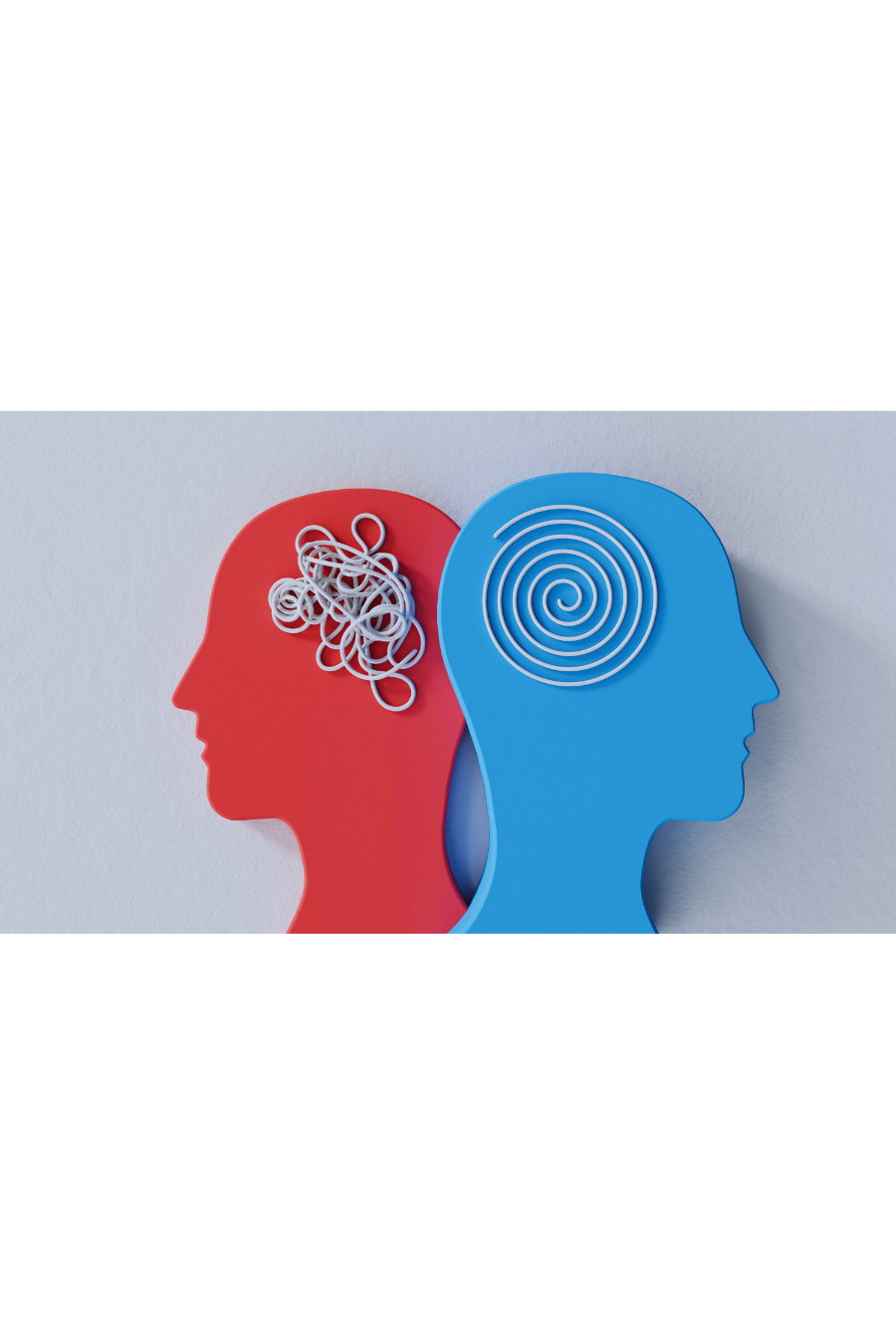Exploring the Link Between Personality and Behavior: A Guide to Understanding Yourself and Others
Have you ever wondered why some people seem to be naturally outgoing while others are more reserved? Or why certain individuals always seem to be the life of the party, while others prefer quiet nights at home? In this blog post, we will delve into the fascinating link between personality and behavior, helping you gain a deeper understanding of yourself and those around you. Join us on this journey of self-discovery and learn how your unique personality traits shape your actions and interactions with others.
Introduction: Why Understanding Personality and Behavior is Important
Have you ever wondered why people behave the way they do? Why some individuals are outgoing and adventurous while others are more reserved and analytical? Understanding the link between personality and behavior can provide valuable insights into our own actions as well as those of others. Join us on a journey through the fascinating world of personality psychology, where we unravel the mysteries behind what makes us who we are. Let’s dive in!
What is Personality Psychology?
Personality psychology is a fascinating field that delves into what makes each of us unique. It’s like having a window into the soul, helping us understand why people behave the way they do.
In essence, personality psychology explores the patterns of thoughts, feelings, and behaviors that make up an individual’s personality. It’s not about labeling someone as an introvert or extrovert; it goes much deeper than that.
By studying personality psychology, we can unravel the complexities of human nature and gain insights into ourselves and others. It’s like solving a puzzle where every piece contributes to painting the full picture.
From exploring traits like openness, conscientiousness, extraversion, agreeableness, and neuroticism to diving into different personality types through tools like the Myers-Briggs Type Indicator (MBTI), there is so much to uncover in this captivating realm of psychology.
The Traits and Types of Personality
When it comes to understanding personality, there are various traits and types that shape who we are. One of the most well-known frameworks is the Big Five Personality Traits, which include openness, conscientiousness, extraversion, agreeableness, and neuroticism. These traits help capture different aspects of an individual’s personality.
Another popular tool is the Myers-Briggs Type Indicator (MBTI), which categorizes people into 16 different personality types based on their preferences in four key areas: introversion/extroversion, sensing/intuition, thinking/feeling, and judging/perceiving. This system provides insights into how individuals perceive the world around them and make decisions.
Understanding these traits and types can offer valuable insights into not just our own behavior but also how we interact with others. By recognizing these different dimensions of personality, we can navigate relationships more effectively and appreciate the diversity in human personalities.
– Discussion of the Big Five Personality Traits
When it comes to understanding personality, psychologists have identified five key traits that help define an individual’s character. These Big Five Personality Traits include openness, conscientiousness, extraversion, agreeableness, and neuroticism.
Openness refers to a person’s willingness to try new things and embrace new ideas. Conscientious individuals are organized, responsible, and goal-oriented in their approach to life. Extraversion is characterized by sociability, assertiveness, and energy in social settings.
Agreeableness reflects how kind-hearted and cooperative someone is in their interactions with others. Neuroticism relates to emotional stability; individuals high in this trait may experience heightened levels of anxiety or moodiness.
These traits provide valuable insight into how people perceive the world around them and behave in different situations.
– Introduction to Myers-Briggs Type Indicator (MBTI)
Have you ever wondered what makes you tick? The Myers-Briggs Type Indicator (MBTI) is a popular tool that can help shed light on your unique personality. This assessment categorizes individuals into one of 16 different personality types based on their preferences in four key areas: extraversion vs. introversion, sensing vs. intuition, thinking vs. feeling, and judging vs. perceiving.
Your MBTI type can provide insight into how you interact with the world around you, make decisions, and approach challenges. Whether you’re an ISTJ who values structure and organization or an ENFP known for their creativity and adaptability, understanding your MBTI type can lead to greater self-awareness and improved relationships.
While some critics debate the scientific validity of the MBTI, many find value in its ability to offer a framework for understanding differences among individuals. So next time someone mentions they are an INFJ or ESTP, remember that they are referring to their MBTI type – a small window into the complex world of personality psychology!
Major Theories of Personality
Delving into the realm of major theories of personality opens up a world of diverse perspectives on what shapes who we are. Sigmund Freud’s Psychoanalytic Theory delves deep into the subconscious, suggesting that our behavior is influenced by hidden desires and unresolved conflicts from childhood.
Abraham Maslow’s Hierarchy of Needs introduces a pyramid representing human motivations, emphasizing the importance of fulfilling basic needs before moving onto higher levels of self-actualization. Carl Jung’s Theory of Collective Unconsciousness explores universal symbols and archetypes shared among all individuals, connecting us through a common humanity.
Each theory offers a unique lens through which to understand how personalities develop and behaviors manifest. By exploring these foundational ideas, we gain insight into the complex interplay between our inner selves and external actions.
– Sigmund Freud’s Psychoanalytic Theory
Sigmund Freud’s Psychoanalytic Theory revolutionized the field of psychology with its emphasis on the unconscious mind. According to Freud, human behavior is influenced by unconscious desires and conflicts that we may not even be aware of.
Freud proposed that personality consists of three components: the id, ego, and superego. The id operates on basic pleasure principles, seeking immediate gratification; the ego mediates between the id and reality; while the superego represents our internalized moral standards.
One key concept in psychoanalytic theory is defense mechanisms like repression and projection – strategies our minds use to cope with anxiety-inducing thoughts or feelings. By delving into past experiences and childhood development, Freud believed individuals could uncover hidden motivations shaping their actions.
While controversial in some aspects today, Freud’s contributions laid a foundation for understanding how deep-rooted psychological processes can shape our personalities and behaviors.
– Abraham Maslow’s Hierarchy of Needs
Abraham Maslow’s Hierarchy of Needs is a fascinating theory that delves into what motivates human behavior. At the core of Maslow’s theory are five tiers of needs that individuals strive to fulfill in a hierarchical order. The foundation consists of physiological needs like food and shelter, followed by safety needs such as security and stability.
Moving up the pyramid, we encounter social needs for belonging and love, then esteem needs related to achievement and recognition. At the pinnacle lies self-actualization, where individuals seek personal growth and fulfillment of their highest potential. Maslow believed that once lower-level needs are met, higher-level ones become more prominent.
This concept suggests that individuals are driven by a desire to progress towards self-fulfillment and actualization. Understanding Maslow’s Hierarchy of Needs can provide valuable insights into why people behave the way they do in various aspects of life.
– Carl Jung’s Theory of Collective Unconsciousness
Have you ever felt a connection to something greater than yourself? Carl Jung’s Theory of Collective Unconsciousness delves into the idea that we share a universal, inherited reservoir of experiences and images. According to Jung, this collective unconscious is made up of archetypes – symbols and patterns that are common across cultures.
These archetypes, like the hero or the mother figure, shape our thoughts, behaviors, and emotions in profound ways. They provide us with a deeper understanding of human nature and the underlying motivations behind our actions.
Jung believed that exploring these archetypes could lead to personal growth and self-discovery. By recognizing these universal themes within ourselves, we can gain insight into our own psyche and better understand how we relate to others on a subconscious level.
The concept of collective unconsciousness opens up a fascinating realm for exploration into the depths of human consciousness and interconnectedness.
How Personality Influences Behavior
Understanding the link between personality and behavior is crucial in navigating our interactions with others. By delving into the realms of personality psychology, we uncover a wealth of insights that can enhance our self-awareness and empathy towards those around us. From exploring the Big Five Personality Traits to unraveling major theories by renowned psychologists like Freud, Maslow, and Jung, we gain a deeper understanding of what makes us tick.
Personality isn’t static; it shapes how we act, react, and interact with the world. Our unique traits influence every aspect of our lives – from how we approach challenges to how we form relationships. By recognizing these influences, we can better understand ourselves and appreciate the diversity in others.
So next time you find yourself puzzled by someone’s behavior or grappling with your own reactions, remember the intricate dance between personality and behavior. Embrace this journey of self-discovery and growth as you navigate the fascinating realm of personality psychology.





